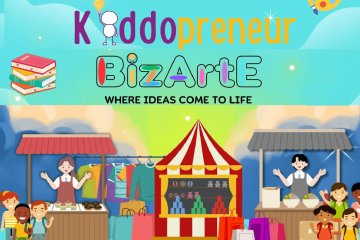We send our children to school because we want them to learn crucial skills, which will help them in the later stages of their lives. It is our dream for students to perform well, as it sets the stepping stones to success.
The problem with the current style of education
When it comes to doing an excellent job in school, we often talk in terms of academics. Thinking about this makes a lot of sense, doesn’t it? For example, subjects such as physics, chemistry, maths, and biology can help students follow career paths related to these subjects.
It is a common belief among parents that performing well in certain subjects such as social studies, science, maths, and language is enough. As they form the core elements in the curriculum, the reasoning for studying them is self-explanatory.
The downside of this level of laser focus on specific subjects is that we don’t pay attention to the complementary ones. For instance, physical education, music, and art are never the center of attention when thinking about academic excellence.
We also believe that sending children to specialized courses is a good move, as it gives them an edge over their peers. Think about it—is it a good practice to tell students to focus on receiving education only in specific subjects?
There doesn’t have to be any focus on complementary interests and subjects, as the grades in these courses don’t carry considerable weightage.
Theory of multiple intelligence
Howard Gardner, professor, researcher, and psychologist from Harvard came up with a revolutionary concept. Known as the theory of multiple intelligence, it is one that challenges traditional beliefs, in the world of cognitive science and education.
The psychologist looks at intelligence from another lens, which states that humans have different types of intellect among them. He also believes that it is possible for us to strengthen and nurture the important ones.
Gardner states the top four types of minds in students. As parents, we need to cultivate them in students, for their benefit.
Bodily-Kinesthetic Intelligence

These students have an excellent awareness of physical control, body movement, and performing various actions. The reasons are extraordinary dexterity and hand-eye coordination. We believe that these types of students learn from their actions, rather than by seeing or hearing.
Linguistic/Verbal Intelligence

When it comes to this type of intelligence, students fall into this category when they have excellent speaking and writing skills. They find it easier to remember spoken and written information. We find that these children find it easier to communicate with their peers.
Logical/Mathematical Intelligence

Students with this variant of intelligence are excellent at analyzing problems, recognizing patterns, and well-versed in reasoning. They have extraordinary problem-solving skills and love scientific experiments.
Musical Intelligence

Children with musical intelligence can think in sounds, rhythms, and patterns. They can remember melodies and songs and understand musical notes, rhythm, and structure.
Focusing on these types of minds will help enhance creativity in students. They teach children leadership and social skills while improving brain health and development. In other words, they give students the keys to leading a balanced lifestyle.
What do I do to encourage balance in education for my child?
As parents, we can ensure our children participate in the right activities, to make sure there is balance in education. We recommend the following programs for this type of development:
- Art activities
- Leadership
- School clubs
- Sport clinics
Are there any family activities I can use to nurture balance in my child?
Yes, at Learning Links Academy, we observed that there are several family activities highlighted below, which can help students acquire balance:
- Host a family sport day
- Participate in cultural events
- Play different types of games
- Tour historic sites
- Volunteer in different programs
The best time to focus on building balance is during the summer vacation when students are free from responsibilities. When they don’t have to worry about exams and grades, they are ready to try out and learn new things.
We host a series of summer workshops, which offer different courses to students. We believe in the theory of multiple intelligence, due to our extensive experience with children. As hundreds of students attend our summer workshops every year, we get the opportunity to see that academics are only one side of the story.

We observed that students love to express themselves when they don’t face any pressure from their schools. By spending time, growing, and learning new skills from our summer workshops, we help children lead a life of balance.
We speak to the parents of our students, to see how our programs are helping them in school. The feedback we get is always incredible, as the guardians let us know about the positive difference in students, both in academics and art. Give your child the edge he/she needs to be successful in the future, by enrolling him/her in our summer workshops!
Sources
- https://www.calgaryschild.com/class-program/arts/1930-academics-art-balance-why-is-a-balance-of-academics-and-the-arts-important-in-education-if-my-child-loves-science
- https://www.verywellmind.com/gardners-theory-of-multiple-intelligences-2795161
- https://www.edutopia.org/blog/creativity-academics-power-of-arts-education-neil-swapp
- https://www.studyinternational.com/news/balance-arts-academics-and-athletics-for-students-to-reach-their-full-potential/
- https://www.cornerstone.edu/blogs/lifelong-learning-matters/post/what-are-multiple-intelligences-and-how-do-they-affect-learning
Learning Links promotes meaningful education and personal growth to help find what students really want for their careers and lives!
Click on the button below to find out how we make great education possible.



